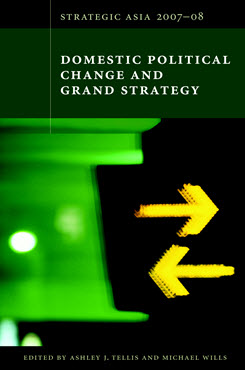Political Change in Southeast Asia
Challenges for U.S. Strategy
This chapter examines the impact of political change in Southeast Asia on U.S. strategic alliances as the U.S. and ASEAN cope with the security implications of China’s rise for the regional balance of power.
EXECUTIVE SUMMARY
This chapter examines the impact of political change in Southeast Asia on U.S. strategic alliances as the U.S. and ASEAN cope with the security implications of China’s rise for the regional balance of power.
MAIN ARGUMENT
U.S. grand strategy in Southeast Asia is focused on maintaining the regional balance of power, which historically has meant a preponderance of U.S. power. To do so at the time when China’s rise is creating region-wide strategic uncertainty, the U.S. must adapt to alterations in the local balance caused by domestic political change within key states. The Philippines and Thailand—U.S. traditional allies—face crises of government legitimacy and military professionalism. Indonesia, Southeast Asia’s rising power, is forming a new strategic partnership with the U.S. Also emerging as a dynamic regional actor, Vietnam sees its relationship with the U.S. as a hedging strategy against China. U.S. relations with Indonesia and Vietnam may be the key points for regional balancing following the war on terrorism.
POLICY IMPLICATIONS
- Both the relevance of U.S. traditional Southeast Asian alliances and expenditure of political capital in maintaining them warrant broad consideration in the context of China’s rise.
- Security relations with the Philippines and Thailand would benefit from careful managment to ensure that the U.S. is not perceived as a “regime enabler” in the future.
- Indonesia’s “strategic partnership” with the U.S. will need approval through Indonesian democratic parliamentary and electoral processes. This will require U.S. appreciation of the country’s Muslim and nationalist sensitivities.
- The U.S. would best be sensitive to the constraints China places on how far and fast Vietnam can deepen a security relationship with the U.S.
Strategic Asia
The Strategic Asia annual edited volume incorporates assessments of economic, political, and military trends and focuses on the strategies that drive policy in the region. Learn more about Strategic Asia.


